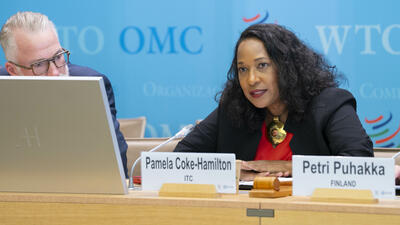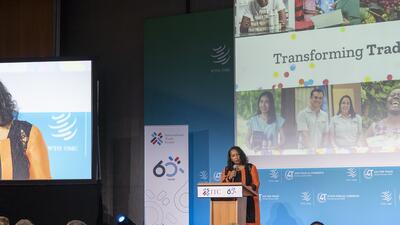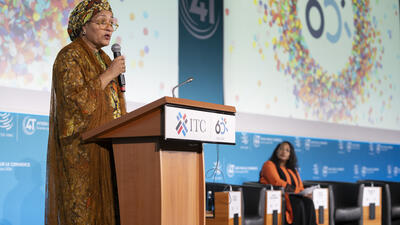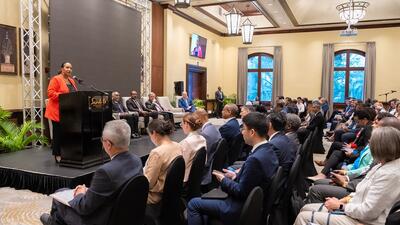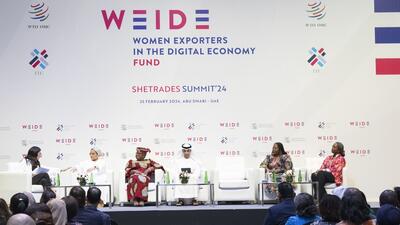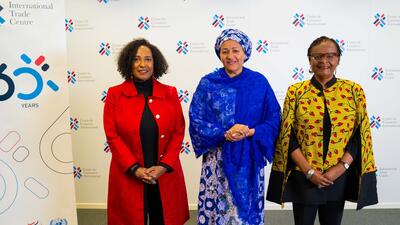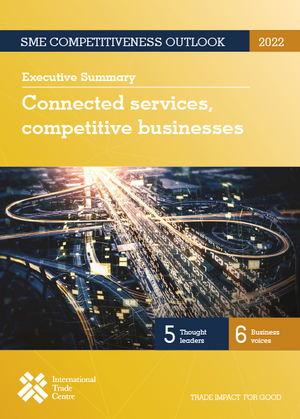
Connected services transform economies
As economies struggle to recover from COVID-19, tackle climate change and overcome conflict, we need to focus on four types of services that are driving economic transformation.
These four, which the International Trade Centre calls “connected services” are transport and logistics, financial services, information and communication technologies, and business and professional services. They provide the ingredients all firms need to prosper – efficient payment solutions and innovative financing, reliable digital and physical connectivity, and cutting-edge business expertise.
Connected services contribute directly to economic growth, with an increasing share of output, trade and jobs. They also contribute indirectly, by making all firms more competitive.
Moreover, connected services make our societies more equal by spurring inclusive growth favourable to small businesses, including those led by women and young people. This services-led approach to development can help countries leapfrog and transform their economies.
Yet most small firms in developing countries do not access these services easily, or at a high quality.
That is why this year’s edition of ITC’s flagship report, the SME Competitiveness Outlook, is devoted to connected services. It maps out how to make them more competitive, so they can provide better services to many small firms, which become more competitive themselves.
The report finds that there are two trends reshaping services in general. First, they account for a growing share of the value of whatever is produced. Second, they are increasingly supplied using digital technologies.
At the forefront of these two trends are connected services. Finance, ICT, transport and logistics, and business and professional services are the glue that connects firms within supply chains and spreads digital innovation.
Connected services are valuable in their own right. Employment is growing rapidly in these sectors, particularly in low-income countries, where they averaged 8% annual job growth in 2007-2019, compared with 4% in manufacturing and 2% in agriculture. They also export more. They attract more investment from abroad. They reinvest a larger share of their revenue in innovation.
However, it is their contribution to overall competitiveness that makes connected services critical. Our research shows that firms in all sectors are more competitive when they have access to high-quality connected services.
For example, in regions with high-quality connected services, 44% of all companies export, compared with 19% of firms where such services are weaker.
Our business surveys underscore the contribution to firm competitiveness of high-quality logistics, finance and ICT services.
These surveys show that 78% of firms with access to high-quality logistics services have good inventory management – compared with 36% depending on low-quality services. In addition, 46% of companies with access to high-quality finance services often create new products or processes, compared with 31% of companies depending on low-quality services. And 58% of companies with access to high-quality ICT services have a website, compared with 35% that depend on low-quality services.
Our research identifies four competencies that are often lacking, but critical to the competitiveness of connected services companies. These are the ability to grow networks, innovate, deepen skills and use finance to diversify products and markets.
The Connected Services, Competitive Businesses Plan showcased in the report summarizes key actions along these fronts. It sets out how companies can address the identified shortcomings, and how business support institutions and governments can play a critical role in ensuring that all companies have access to these important inputs.
We at ITC have stepped up our efforts to help small firms both provide and access connected services. By working with actors at all three levels – enterprise, business support ecosystem and government – we are weaving a tapestry of support that is taking small businesses online and into the global trading system.




